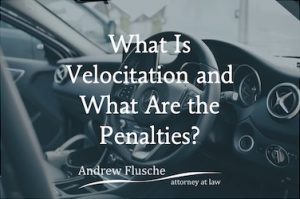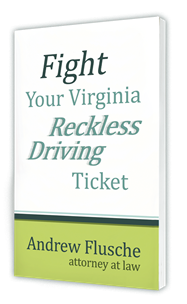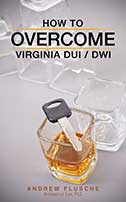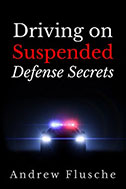What Is Velocitation and What Are the Penalties?
Velocitation Definition

Or have you ever exited the highway onto local roads and felt like your car was crawling? This phenomenon is called velocitation.
Velocitation occurs when you gradually accelerate unnoticed by matching the speed of surrounding vehicles instead of checking your speedometer.This happens because you subconsciously match the speed of surrounding vehicles instead of checking your speedometer. What happens is that your eyes get used to the fast speed of the images they are processing.
In this way, your brain becomes accustomed to traveling at a fast pace. Velocitation means your ability to judge the speed at which you are traveling is temporarily impaired. This happens when your mind has become desensitized to your velocity.
Velocitation is different from highway hypnosis. Highway hypnosis is a phenomenon that causes you to go into a trance-like state while driving. It is akin to operating on autopilot.
For example, when you have been driving for a while and suddenly realize that you don’t remember driving the last 50 miles. Highway hypnosis happens when your brain is lulled by the monotony of the road, the repetition of the white lines, and the sound of the motor.
Fatigue is the most common reason. Both highway hypnosis and velocitation are dangerous, but different, phenomena.
Why Is Velocitation Dangerous?
Velocitation is dangerous because it can cause you to travel at a much higher speed than you intend to or realize. Car accidents at high speeds can be deadly, or result in disfigurement or serious injury.
The National Highway Traffic Safety Administration (NHTSA) determined that accidents on highways are five times more likely to result in death than crashes that happen on local roads with speed limits under 40 mph.
Speeding reduces your ability to steer safely around curves and objects. Also, your brakes are less capable of stopping your vehicle at short distances. Your airbags and seatbelts are less effective and can even be dangerous at very high speeds.
You are putting yourself, your passengers, and others at risk when you are not aware of how fast you are going. At the very least, you could end up with some steep penalties for traffic offenses if you are caught.
How Can I Prevent Velocitation?
The best way to prevent velocitation is to remain alert and frequently check your speedometer. Velocitation occurs most during long, monotonous drives, when your brain has a likelihood of “checking out.”
So check in with yourself to make sure you are staying aware and present while you are driving. Take a break once in a while to clear your head and allow your eyes and senses to readjust. Try to avoid staring too far off into the distance on an open road.
And make sure to plan frequent stops on long drives. Get out at a rest stop and walk around a bit, or take a nap if you find yourself spacing out.
Are There Penalties for Velocitation?
If you drive over the posted speed limit and get pulled over, you could be facing serious consequences. A police officer does not want to hear that you didn’t know how fast you were going.
Charges for reckless driving or speeding will result in points on your license, high fines, increased insurance premiums, and possible jail time. Points on your driving record, called demerit points, will remain for at least two years.
You could voluntarily take a safe driving course to earn safe driving points and offset the demerits. However, you can’t earn safe driving points if a court orders you to take the course. If you end up with too many points on your record, your license may be suspended, or even revoked.
Speeding
Speeding is a three, four, or six-point violation, and the points will remain on your driving record for five years.
A violation of the speeding laws with aggravating factors, such as hazardous lane changes, could also result in a charge of aggressive driving, a Class 2 misdemeanor. Penalties for a Class 2 misdemeanor are up to six months in jail and a maximum fine of $1,000.
Reckless Driving
Reckless driving is a criminal violation in Virginia. It is defined as driving that puts another person in danger of injury or death, or endangers property.
Other activities may also land you with a reckless driving charge, such as speeding on a highway. If you are pulled over for driving over 85 mph, or 20 mph over the speed limit, you will normally be charged with reckless driving.
It is a Class 1 misdemeanor in Virginia. Reckless driving convictions can come with jail time up to a year, a maximum penalty of $2,500, and six points on your driving record. A charge for reckless driving will remain on your Virginia driving record for 11 years.
Even if you live out of state, the charge may follow you home and hit you with license suspensions, surcharges, or penalties. Your attorney may be able to have your reckless driving charge reduced to improper driving or speeding depending on the facts of your case.
Improper driving is a lesser traffic violation with a maximum penalty of $500.
Get Help from an Experienced Virginia Traffic Attorney
If you were charged with violating Virginia traffic laws, you are facing high fines, points on your record, increased car insurance premiums, and possibly even jail time.
You need an experienced attorney to help you get the best possible result for your case. I specialize in traffic tickets and misdemeanor defense, specifically reckless driving.
Contact my firm to schedule your initial consultation and speak to me directly about the details of your case.




